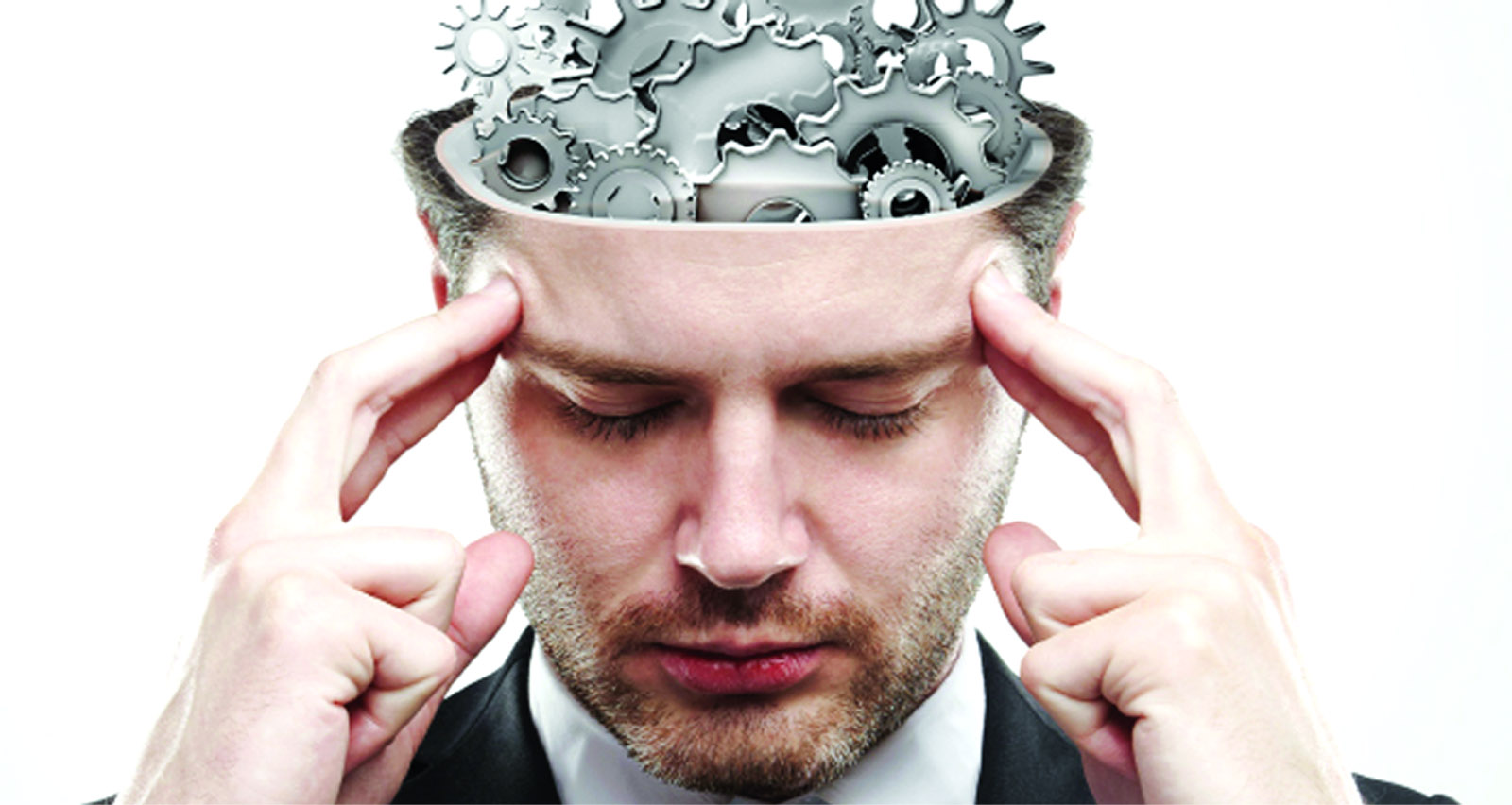खुद पर थोपे गए दबाव से कैसे बचें!

जब भी आप सो के उठते हैं तो तुरंत अपना मोबाइल देखना होता है। ये ही नहीं, जब भी फ्री होते हैं, तो आप अपने मोबाइल की तलाश में हैं या फिर दौड़ के जाते हैं, मोबाइल की ओर और देखना चाहते हैं, क्या कुछ चल रहा है, जब आपका उसे कोई मतलब नहीं होता। आप केवल उस चीज़ में फंस गए हैं। आपने अपने दिमाग के ऊपर दबाव बनाया है मुझे उसे देखना चाहिए बिना किसी कारण के,और आप अंजान रहते है उस मानसिक दबाव से जिसका आपके बॉडी पर बहुत प्रभाव पड़ता है
क्या आप मानते हैं कि जैसे ही ईमेल आपके इनबॉक्स में आते हैं, आपको उनका जवाब देना चाहिए, आखिरी मिनट की बैठक में भाग लेना चाहिए, भले ही आपने अपनी बेटी को उसके स्कूल के खेल में भाग लेने का वादा किया हो, दोस्तों और परिवार के साथ रात्रिभोज के समय अपना फोन चेक करते रहें, सप्ताहांत प्रयास करते रहें कार्यदिवस पर पर्याप्त समय नहीं होने के कारण काम पर लगना और समय सीमा को पूरा करने के लिए देर रात तक काम करना?
क्या यह कार्यस्थल की मांगें हैं जो असंतुलन पैदा कर रही हैं या आपकी अपनी अपेक्षाएं हैं कि आपको कैसा व्यवहार करना चाहिए? एक पल के लिए इसके बारे में सोचो। क्या यह आपका अपना आंतरिक दबाव है जो आपने अपने लिए बनाया है? क्या दूसरे सचमुच आपसे इसी तरह व्यवहार करने की अपेक्षा करते हैं या यह सब आपके मन में है?
मनोवैज्ञानिक कहते हैं, “आज हो रहे विकास ने हमारे दिमाग को इस तरह बदल दिया है कि हम मानसिक रूप से पीड़ित होने के लिए मजबूर हो गए हैं: खुद की तुलना करना, मूल्यांकन करना और आलोचना करना, हममें क्या कमी है उस पर ध्यान केंद्रित करना, जो कुछ है उससे तेजी से असंतुष्ट होना हमारे पास सभी प्रकार के भयावह परिदृश्यों की कल्पना करने का अवसर है, जिनमें से अधिकांश कभी घटित नहीं होंगे। इसमें कोई आश्चर्य नहीं कि इंसानों को खुश रहना मुश्किल लगता है। आप सब कुछ नहीं पा सकते ये आपको मानना ही पड़ेगा। ये स्वविकार करने में ही भलाई है |”
Mastering the mind is a multifaceted journey.

Controlling the mind is a complex and multifaceted endeavor, often involving various strategies and practices. While achieving complete control over one’s mind may be challenging, there are several approaches that individuals can employ to enhance their ability to influence and manage their thoughts, emotions, and behaviors:
Mindfulness Meditation: Practicing mindfulness meditation involves cultivating awareness of the present moment without judgment. This practice can help individuals observe their thoughts and emotions without being consumed by them, thereby enhancing their ability to regulate their mental state.
Cognitive Behavioral Therapy (CBT): CBT is a therapeutic approach focused on identifying and challenging negative thought patterns and replacing them with more constructive and rational ones. Through CBT, individuals can learn to exert greater control over their thoughts and beliefs, leading to healthier emotions and behaviors.
Self-Reflection and Journaling: Regular self-reflection and journaling allow individuals to explore their thoughts, feelings, and behaviors in depth. By gaining insight into their inner workings, individuals can identify areas for improvement and develop strategies to better manage their minds.
Healthy Lifestyle Habits: Engaging in activities such as regular exercise, adequate sleep, balanced nutrition, and stress management techniques can significantly impact mental well-being. These habits support overall brain health and can enhance cognitive function and emotional regulation.
Visualization and Positive Affirmations: Visualization techniques involve imagining desired outcomes or experiences, while positive affirmations involve repeating positive statements to oneself. These practices can help reprogram the subconscious mind and foster a more positive and empowered mindset.
Limiting Exposure to Negative Influences: Minimizing exposure to negative stimuli such as stressful environments, toxic relationships, and harmful media can prevent the mind from being inundated with negative thoughts and emotions.
Seeking Professional Help: In some cases, individuals may benefit from seeking guidance from mental health professionals, such as psychologists or psychiatrists, who can provide personalized strategies and support tailored to their specific needs and challenges.
It’s important to note that achieving control over the mind is a gradual and ongoing process that requires patience, persistence, and self-compassion. Additionally, what works for one person may not necessarily work for another, so it’s essential to explore different techniques and find what resonates best with individual preferences and circumstances.
Time to Quit Mobile Phones!

Taking a break from mobile devices can help you relax and be more productive. Excessive use of mobile phones can lead to poor psychological health, such as anxiety, loneliness, and low self-esteem. It can also cause you to neglect important things in your life, such as work, school, hobbies, and relationships.
In addition to the mentioned health concerns, prolonged mobile phone use can also lead to:
Posture Issues: Excessive phone use can contribute to poor posture, leading to back pain and spinal problems over time.
Eye Fatigue: Staring at a screen for extended periods can cause eye fatigue, dryness, and irritation, known as digital eye strain.
Sleep Disruptions: The blue light emitted by screens can interfere with the production of melatonin, a hormone that regulates sleep, leading to insomnia or disrupted sleep patterns.
Increased Stress: Constant notifications, alerts, and the pressure to stay connected can contribute to heightened stress levels and feelings of overwhelm.
Reduced Physical Activity: Spending too much time on phones can lead to a sedentary lifestyle, reducing physical activity levels and increasing the risk of obesity and related health issues.
Impact on Mental Health: Excessive use of social media and digital communication can lead to comparison, FOMO (fear of missing out), and negative impacts on self-esteem and mental well-being.
Potential Hearing Damage: Prolonged exposure to loud volumes through headphones or earbuds can lead to hearing loss or damage.
These health concerns highlight the importance of practicing moderation and mindfulness when using mobile phones to mitigate potential risks.
Underwater Exercise Is Used By Jhon Hasal Strengthen Weak Muscles

What is Lorem Ipsum?
Lorem Ipsum is simply dummy text of the printing and typesetting industry. Lorem Ipsum has been the industry’s standard dummy text ever since the 1500s, when an unknown printer took a galley of type and scrambled it to make a type specimen book. It has survived not only five centuries, but also the leap into electronic typesetting, remaining essentially unchanged. It was popularised in the 1960s with the release of Letraset sheets containing Lorem Ipsum passages, and more recently with desktop publishing software like Aldus PageMaker including versions of Lorem Ipsum.









